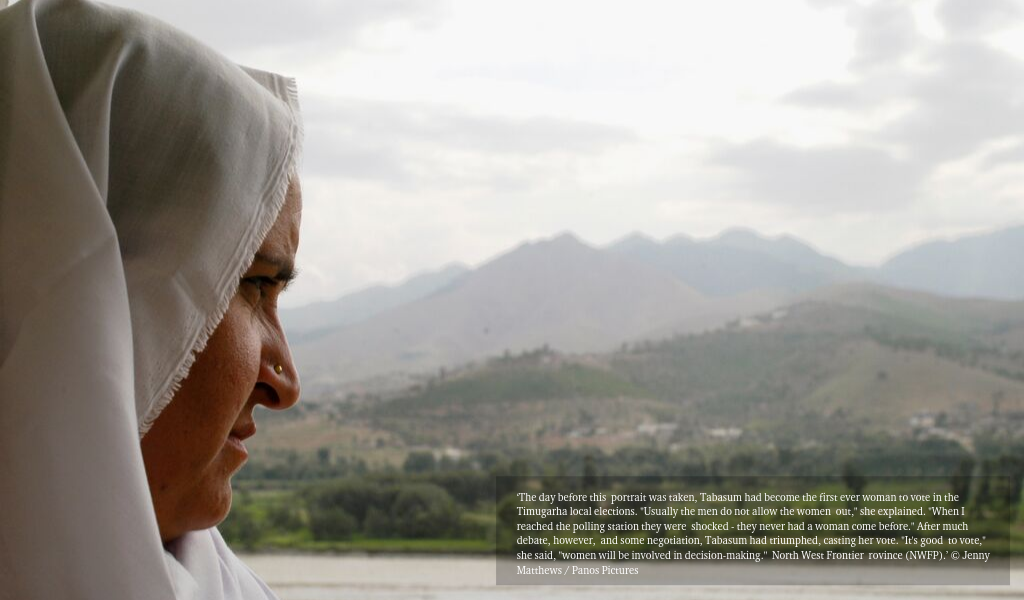For more than 40 years, IDS has been forging its well-earned reputation for progressive gender research, knowledge sharing and teaching. That work continues apace today with IDS programmes and researchers continuing to deepen understanding of how to strengthen women’s political and economic empowerment.

A dynamic example was the recent work on women’s political engagement in Pakistan led by the Action for Empowerment and Accountability (A4EA) international research programme. A4EA as a whole seeks to further understanding about empowerment and accountability for people who live in fragile, conflict-affected and violent settings.
In Pakistan, the project helped to close the persistent gender gap in electoral participation by eight per cent in some of the localities where it worked. Its research revealed that women felt ‘invisible’ and disillusioned with politics, rather than held back by social conservatism. Engaging with both women and men at household level – rather than community level as many donor projects tend to – helped reduce that disconnect.
IDS Board member Ali Cheema of the Institute of Development and Economic Alternatives (IDEAS) and his colleague presented these findings at a high-level event organised by Pakistan’s National Commission on the Status of Women. This prompted the Election Commission of Pakistan to request a seminar on the findings, which it will consider in future strategic planning.
Influencing gender programming
IDS gender research is influencing how organisations work to help women in developing countries. A leading NGO praised the work by IDS Fellow Sohela Nazneen into how intersecting forms of inequalities affect women’s political participation at local levels in South Asia. Tam O’Neil, Senior Gender Adviser at CARE International UK, said: ‘Given the dearth of research in this area, Sohela Nazneen’s research on gender, intersectionality and local government in Bangladesh and Pakistan will be an invaluable resource to support our programme design in this area… More please!’
Sohela Nazneen’s book on women’s use of informal networks and gender-equitable policies for the Effective States and Inclusive Development Research Centre (ESID) project has since attracted acclaim from leading academics, UN Women and DFID.
Raising awareness of women’s unpaid care work
Women in developing countries face a double burden of unpaid care responsibilities and poorly paid work to meet basic needs. The issue received wide attention over the past year thanks to IDS Fellow Deepta Chopra’s research on improving the balance of paid work and unpaid care to promote women’s economic empowerment.
Part of the Growth and Equal Opportunities for Women (GrOW) programme led by IDS, Deepta’s work covered four countries in South Asia and sub-Saharan Africa. Findings were shared in various formats, including a report, an animation and audio-photo videos. Deepta was interviewed about the research on BBC Radio Four’s Woman’s Hour and was invited to present at a UN Women Expert Group meeting.
She also produced a background paper for the 63rd Commission on the Status of Women in New York in March 2019, highlighting the limitations of existing social protection programmes for empowering women.